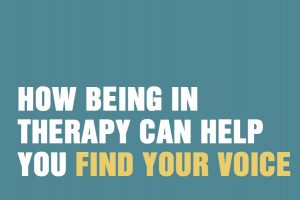Co-dependency is a condition, like OCD, that is widely misunderstood. The word ‘co-dependent’ is in common usage but is misused more often than not. Much as people might comment if they see a tidy shelf, “oh, you are a little bit OCD” they might see you in a problematic relationship and say, “I think you’re co-dependent”. But – are you? And – how would you know?
Common characteristics in co-dependent people:
- You have an exaggerated sense of responsibility for the things other people do
- You tend to confuse love with pity (so you only love people you feel sorry for and feel you can help)
- You have a tendency to shoulder than your share of the burden, all the time
- You become easily hurt when people don’t recognise or acknowledge your efforts
- Your greatest fear is of being abandoned or alone
- Your relationships are more important to you than almost anything else, you rely on them to an unhealthy degree.
- You have an exaggerated need for approval and recognition
- You would do anything to hold on to a relationship to avoid feeling rejected or abandoned
- You do not have much trust in yourself and/or others
- You find it really hard to identify your own feelings
- Decisions are agonising for you
- Change is very difficult
- You have problems with intimacy/boundaries
- Your anger and irritation is chronic
- You sometimes lie or ‘bend the truth’
- You feel very guilty if you assert yourself or are in the centre of attention
- You have a compulsion to control others
- You find it hard to communication clearly with people particularly about your emotional needs
Six signs that you might be co-dependent:
- Your first instinct on getting to know someone is a wish to help them in some way and as you get more involved as a friend, colleague or partner you feel a strong, automatic desire to take responsibility for them and to ‘rescue’.
- You feel drawn to people with difficulties even though the issues they face outweigh your capacity to fix them.
- You put others first because this gives you a sense of purpose and belonging. Fulfilling the needs of others, even if it means sacrificing your own needs, makes you feel affirmed and boosts your self-esteem.
- You have stayed in at least one relationship with a partner who needed to be taken care of and ‘rescued’ far longer than you should and despite the fact that it was making your life difficult, giving you stress, and affecting your other relationships.
- All the people that are attracted to you seem to be in perpetual crisis or are, in some way, unconsciously or not, looking for someone to look after them and take responsibility for their lives.
- Your pattern is to put a lot of effort into enabling others. This is very well-intentioned, but in the end is unhealthy for you and them – because neither of you are learning how to motivate yourself or learn to look after yourself.
Why are you co-dependent?
The clues and causes can almost definitely be traced back to your childhood. For example, did you as a child feel you had to suppress your own wishes and needs to win your mum and/or dad’s approval? Many co-dependent people had to take care of a parent who had depression, addictions or were chaotic, manipulative or emotionally unstable. Having had to “parent the parent” is a common indicator that a child might go on to become co-dependent.
This makes a lot of sense if you stop to think about it. The parent-child relationship is the first love relationship any of us are in and from this we learn how to love and be with people, so it sets the stage for our relationships in adult life. As a child you learned to repress your emotions and disregard your own needs. The “script” or “program” that you were given in your early life was of helping behaviour, which becomes one-sided and unhealthy.
What can you do about it?
If you suspect you are in a co-dependent relationship the fact that you are reading this and informing yourself about co-dependency is an important first step.
The way to go about changing any type of unhealthy behaviour is to better understand it. It is important for co-dependents and their family members to educate themselves about the course and cycle of family dysfunction and how it extends into their relationships.
Once you have brought it to awareness you can find help by reading self-help books, joining a support group or starting therapy. A counsellor or psychotherapist can help to trace back to the roots of your co-dependence, and help you to set boundaries and form healthier relationships..
If you feel you need some support in bringing about the changes you want to make in your relationships, call 020 8673 4545 or email [email protected] and the Front of House team will book an appointment with one of our therapists. We have centres in Clapham and Tooting and no waiting list.







